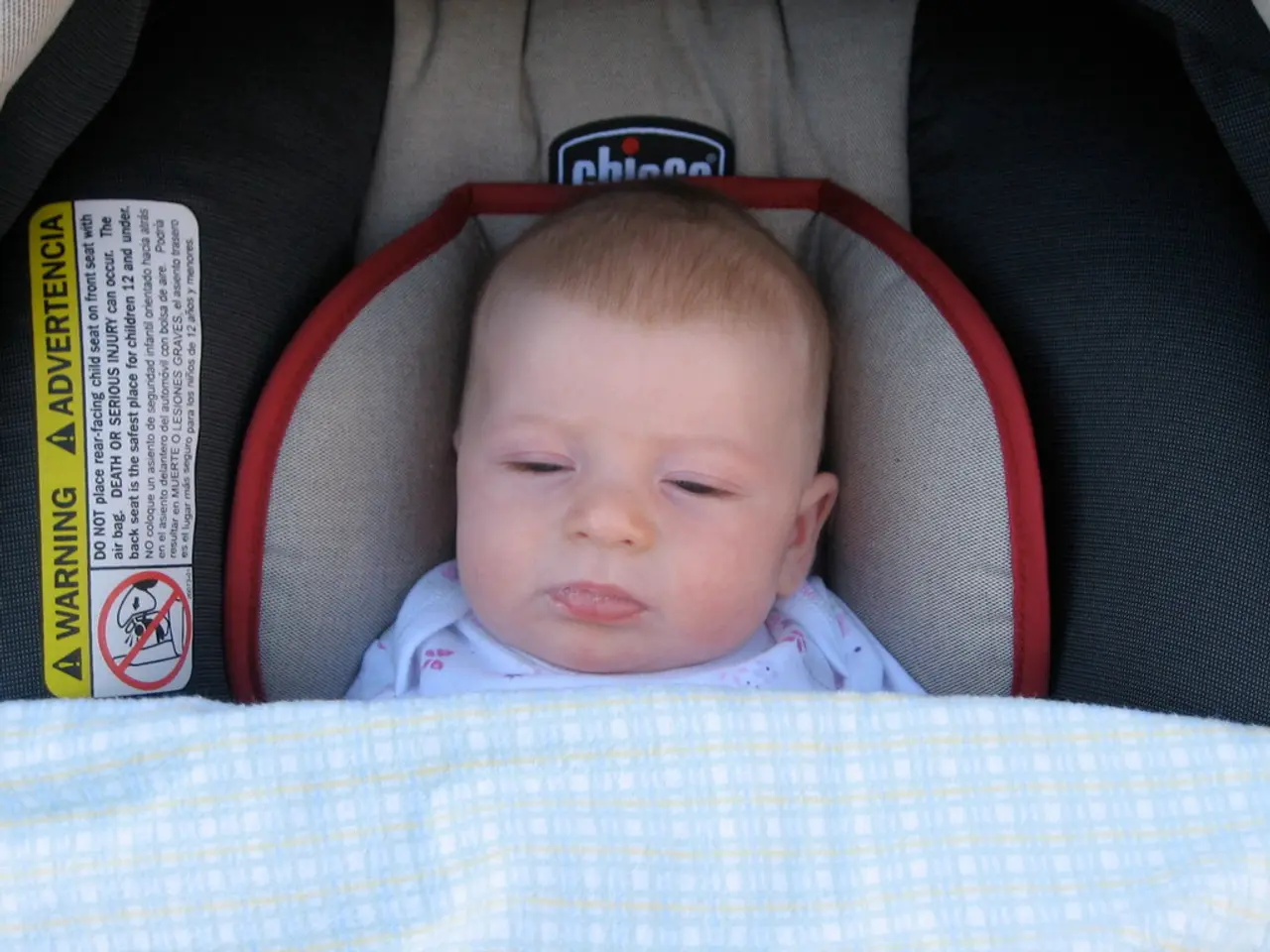Protecting Infants: Essential Strategies for Nigerian Households
In Nigerian homes, the safety and well-being of babies is a top priority. Here are some essential tips to baby-proof your home and create a safer environment for your little one.
Fire Safety Measures
It's crucial to educate yourself and your family members about fire safety. Teach your children about the dangers of fire, how to prevent fires, and what actions to take in an emergency. Installing smoke detectors on each floor of your home is a fundamental step in fire safety. Be sure to test the batteries regularly and replace them as needed. Smoke detectors can detect even the smallest trace of smoke and warn you about the potential danger.
In addition to smoke detectors, developing a fire evacuation plan is crucial. This plan should include designated escape routes from each room, a meeting point outside the house, and clear instructions on how to exit the building safely. Regularly practice the fire evacuation plan with your family members to ensure everyone knows what to do in case of an emergency.
Baby-Proofing Your Home
Baby-proofing your home is essential for ensuring the safety and well-being of babies in Nigerian homes. Here are some specific safety measures for baby-proofing a Nigerian home:
- Install safety gates at the top and bottom of stairways to prevent falls, especially important if the home has stairs or glass railings.
- Secure doors with child-proof locks to prevent babies from opening doors and accessing potentially dangerous areas.
- Lock toilet lids using specialized lid-locks to prevent drowning hazards in bathrooms.
- Apply corner guards to sharp edges of furniture or countertops to protect babies from injuries.
- Use safety kits that include a combination of essential baby-proofing tools like door stoppers, socket covers, corner guards, and safety locks, which can be specially sourced for Nigerian homes.
- Keep the home environment neat and clear of hazards such as accessible hot cooking areas or uncovered electrical outlets.
While general Nigerian home safety also involves preparations for fire safety and gas boiler safety, the baby-proofing focus is on physical barriers and securing potential hazards within the living space. Given specific local conditions in Nigeria, such as power outages or certain types of housing structures, parents should also ensure that exposed wiring is covered, flammable materials are out of reach, and that constant supervision accompanies these safety installations.
Preventing Choking Hazards
Preventing choking hazards is essential to keeping your baby safe. Here are some tips to help reduce the risk of choking hazards:
- Use safety gates at the top and bottom of stairs to prevent falls.
- Pay attention to the texture and consistency of food, ensuring that it is appropriate for their age.
- Encourage them to eat slowly, taking small bites and chewing thoroughly before swallowing.
- Never leave your baby unattended while eating, especially when they are still learning to chew.
- By following these tips, parents can significantly reduce the risk of choking hazards and provide a safer environment for their babies.
Creating a Safe Sleeping Environment
To create a safe sleeping environment, use a firm mattress and fitted sheets, avoid using pillows, toys, and heavy blankets, place baby on their back to sleep, and keep the crib or bassinet away from cords, curtains, and other hazards. A safe sleeping environment is crucial for a baby's well-being and safety.
Bathing Safety
Keeping small objects out of babies' reach to prevent choking hazards is essential. When bathing your baby, keep all bath products within reach, but out of baby's grasp to prevent accidents or ingestion of harmful substances. Dry baby properly and immediately after bathing to prevent them from catching a chill and ensure their skin is completely dry.
Supervision is Key
Always be present and attentive during your baby's mealtime to prevent choking incidents. Supervise playtime to minimize falls and accidents. Install window guards to prevent falls from open windows. Use a safe and appropriate tub or basin for bathing your baby.
Conclusion
By following these tips, parents can significantly enhance baby safety in Nigerian homes. Regularly inspect the floor, play areas, and other accessible spaces to ensure that no small items are present. Keep all emergency contact numbers easily accessible in case of an emergency. With these measures in place, parents can provide a safer and more secure environment for their babies.
- In addition to fire safety measures, educate yourself and your family about the importance of baby-proofing your home to create a safer environment for your little one.
- Install safety gates at stairs and lock doors with child-proof locks to prevent access to dangerous areas within the home.
- Secure toilet lids using specialized lid-locks, apply corner guards to furniture or countertops, and use safety kits that include essential baby-proofing tools.
- Keep the home environment neat and clear of hazards, such as accessible hot cooking areas or uncovered electrical outlets.
- Pay attention to the texture and consistency of food while feeding babies, encouraging them to eat slowly and chew thoroughly before swallowing to prevent choking hazards.
- Always be present during mealtime and supervise playtime to minimize falls and potential accidents.
- Inspect the home regularly for small objects that could pose a choking hazard and keep all emergency contact numbers easily accessible.
- Create a safe sleeping environment for your baby by using a firm mattress and fitted sheets, placing your baby on their back to sleep, and keeping crib or bassinet away from hazards like cords, curtains, and other dangers.




